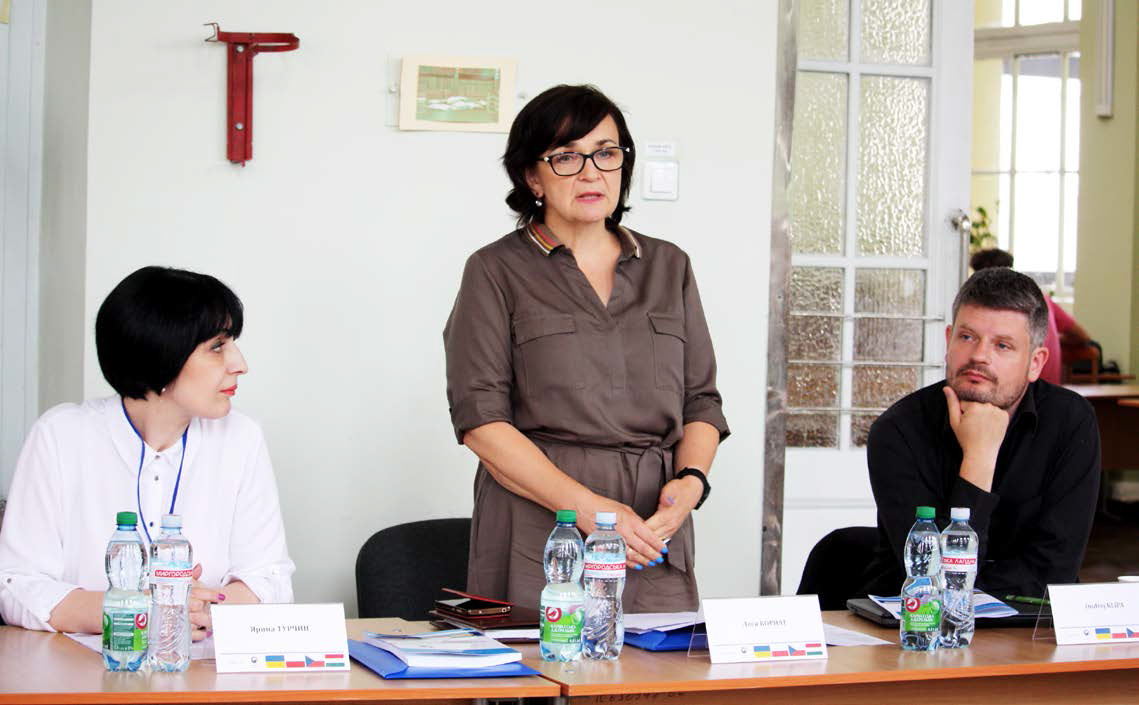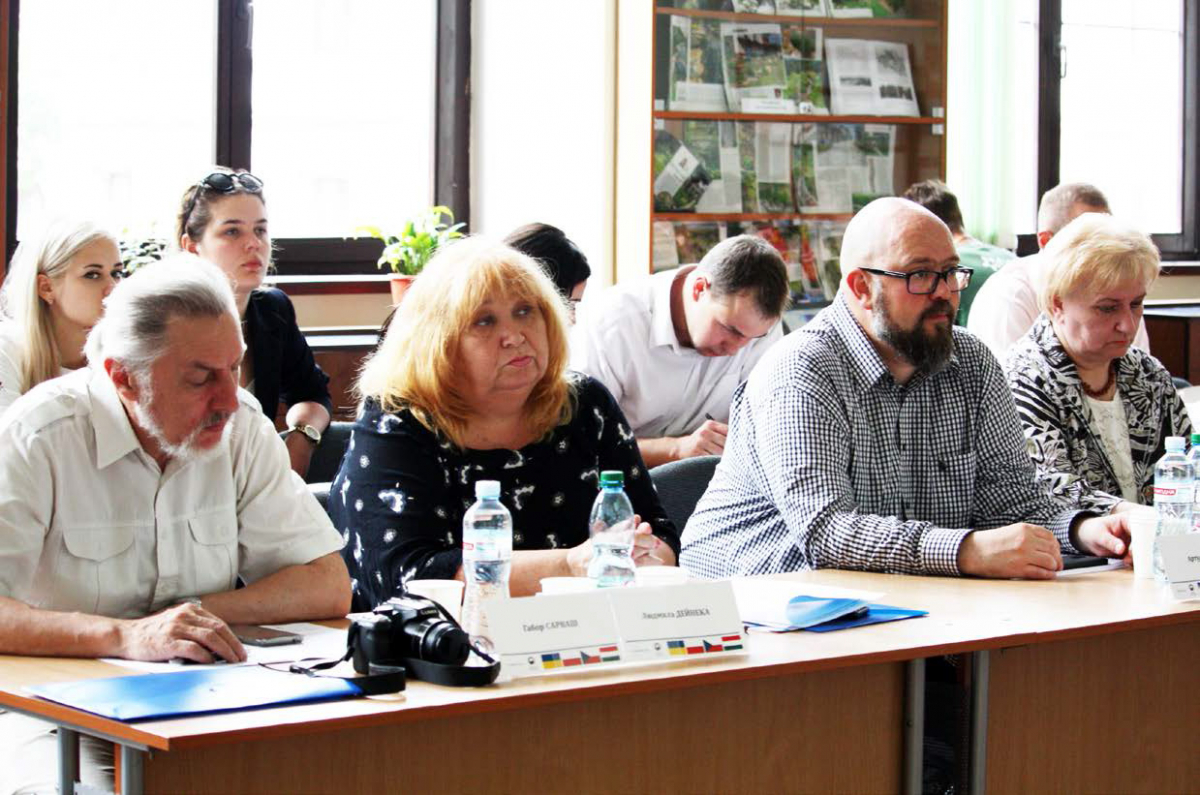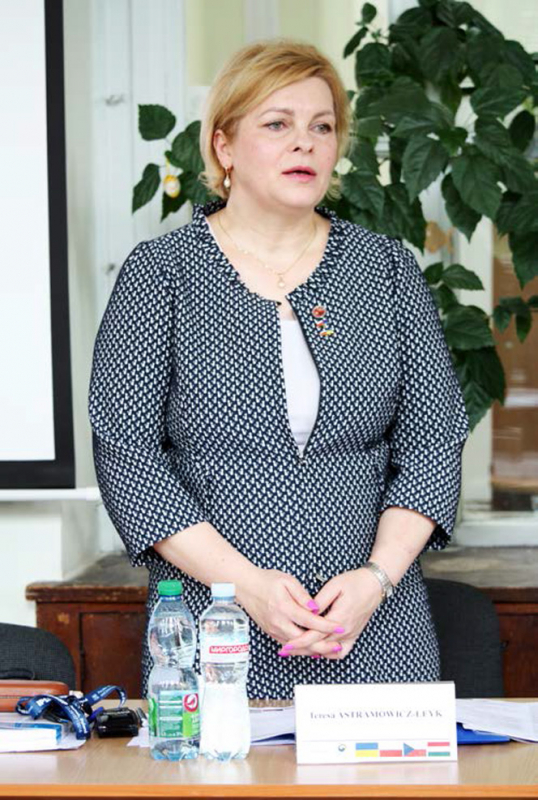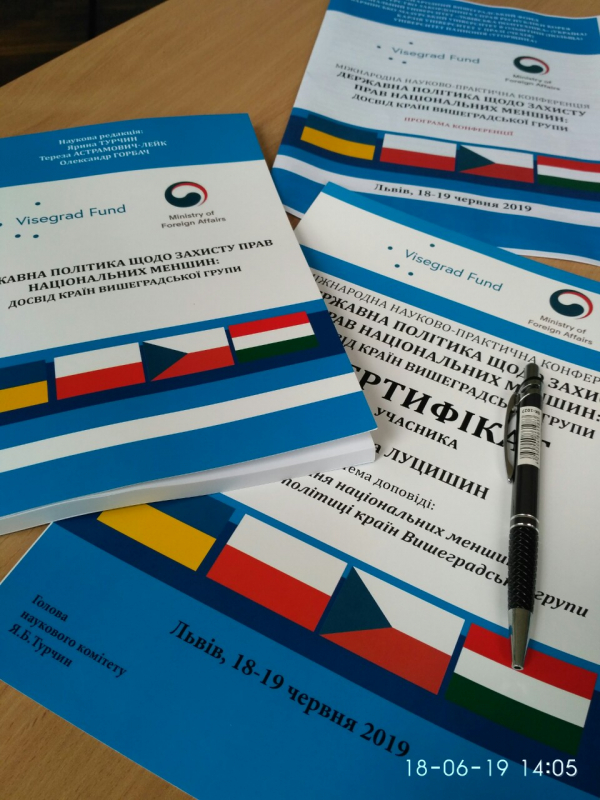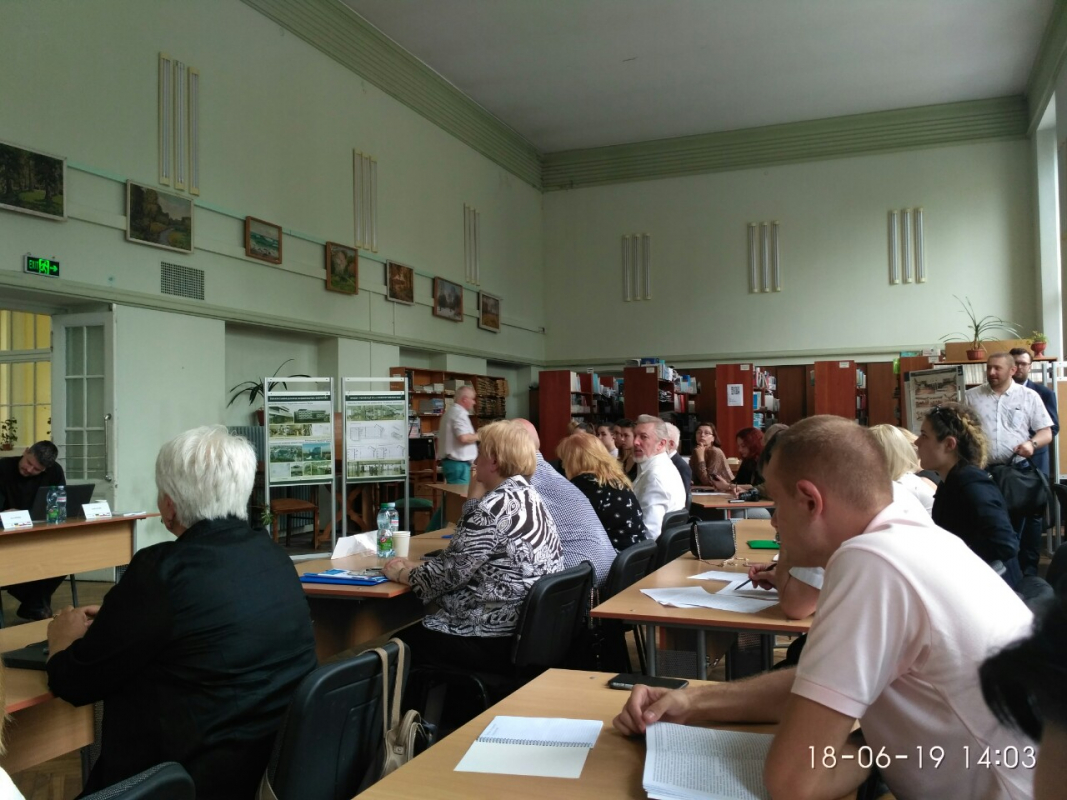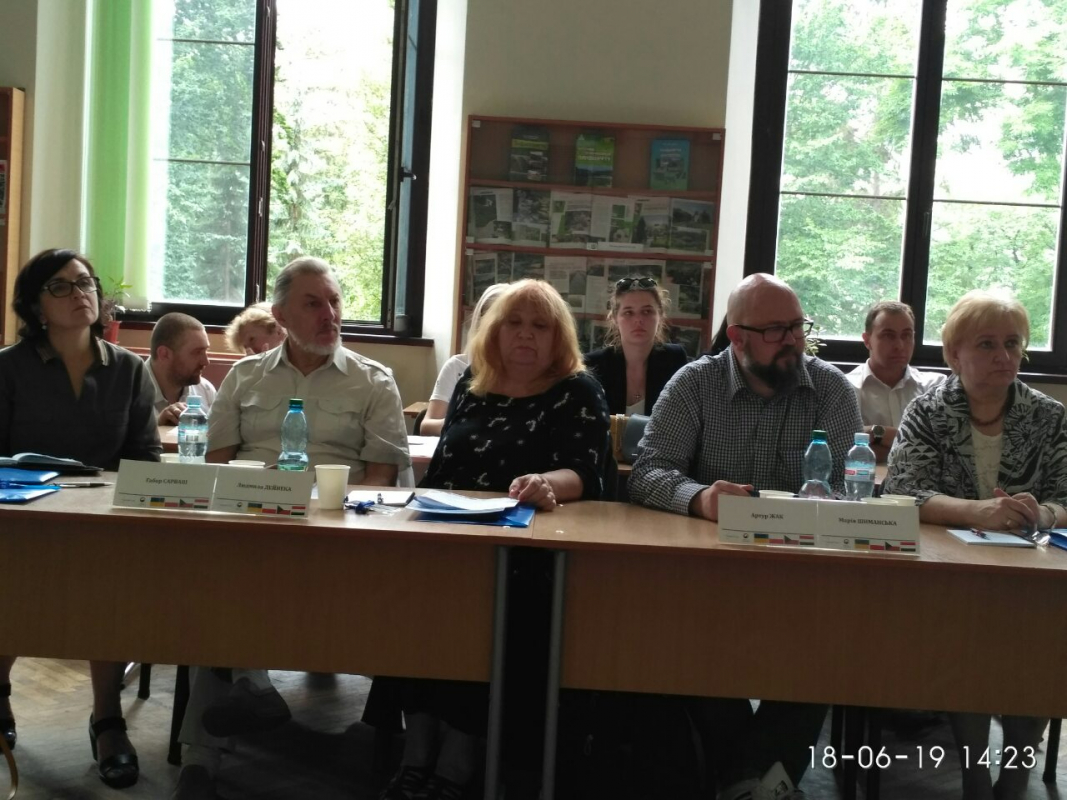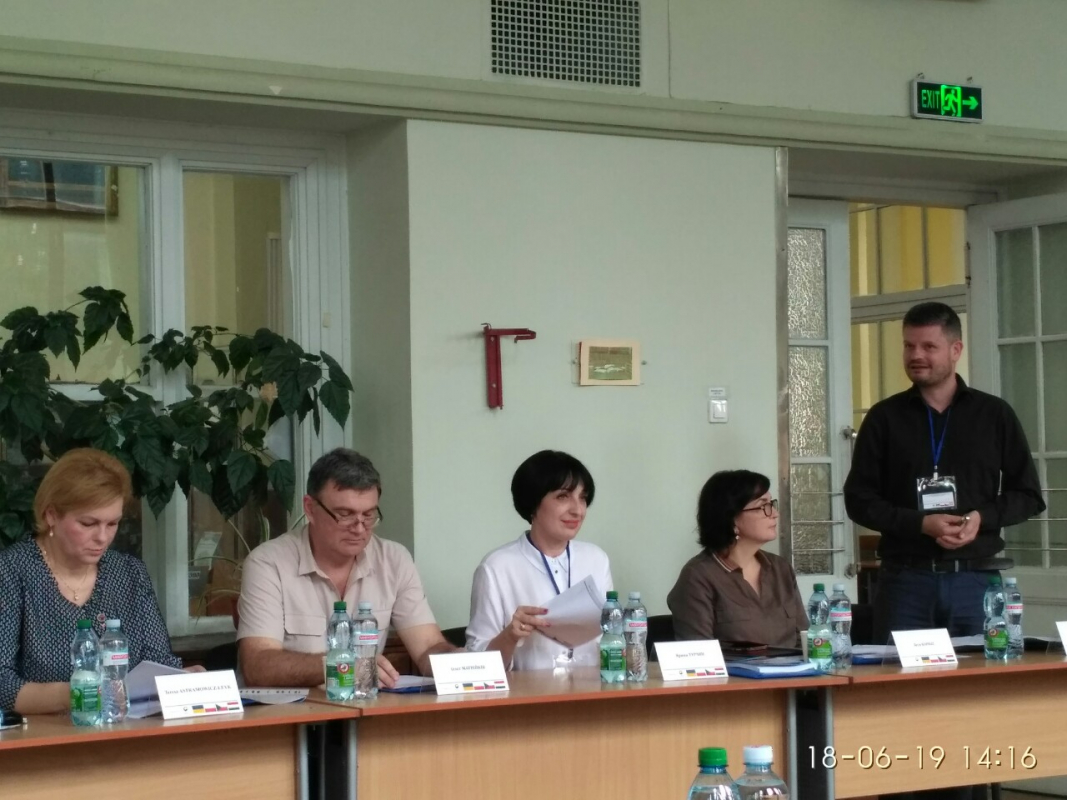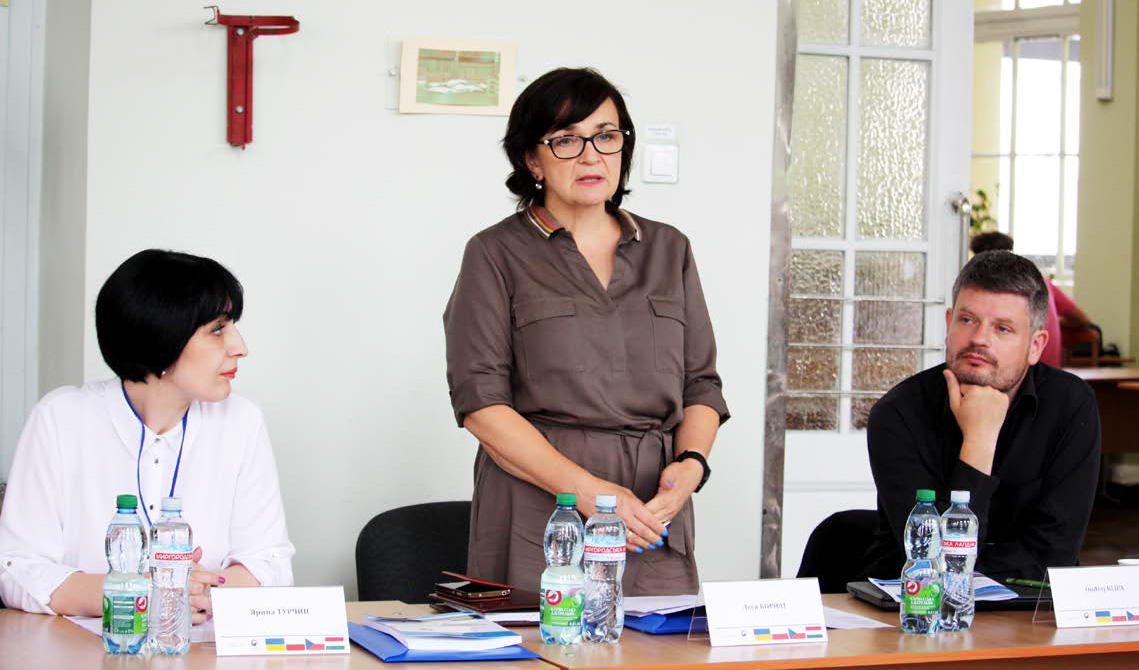A conference dedicated to the State policy on national minorities rights protection: experience of Visegrad Group countries (Czech Republic, Slovakia, Hungary and Poland) was held in Lviv Polytechnic.
The event was organized by the Department of Political Science and International Relations of the Institute of the Humanities and Social Sciences on the basis of the results of the grant financed by the International Visegrad Fund and the Ministry of Foreign Affairs of the Republic of Korea. A number of universities, in particular – University of Warmia and Mazury (Poland), Charles University (Czech Republic) and University of Pannonia (Hungary) became the partners. The representatives of the Department for Nationalities and Migration of Lviv Region State Administration and organizations of national minorities – Polish, Czech and Hungarian – of the region took part in the conference.
The project director is Professor Yaryna Turchyn, the Director of the Institute of the Humanities and Social Sciences. She presented a collective monograph on theoretical and practical research on the protection of the rights of national and ethnic minorities in four EU countries, conducted by Ukrainian, Polish, Czech and Hungarian scholars, and described the peculiarities of the activities of national minorities in the Warmian-Masurian Voivodeship.
A number of issues were discussed at the conference. In particular, Teresa Astramowicz-Leyk, the Professor at the University of Warmia and Mazury, spoke about the activities of Polish minority in Lviv. Ondřej Klípa, Ph.D at Charles University in Prague, talked about the ethnic migration to Poland and the peculiarities of providing the Pole’s Card to the citizens of the post-Soviet states. Mykola Hetmanchuk, Professor at Lviv Polytechnic, reported on the issues of scientific and legal determination of national and ethnic minorities.
Lviv Polytechnicians hope that after the completion of the grant from the International Visegrad Fund, the work on the research on problems of national minorities and the ways of their solution will be continued with the participation of public authorities and local government, in particular, within the framework of new national and international grants.
